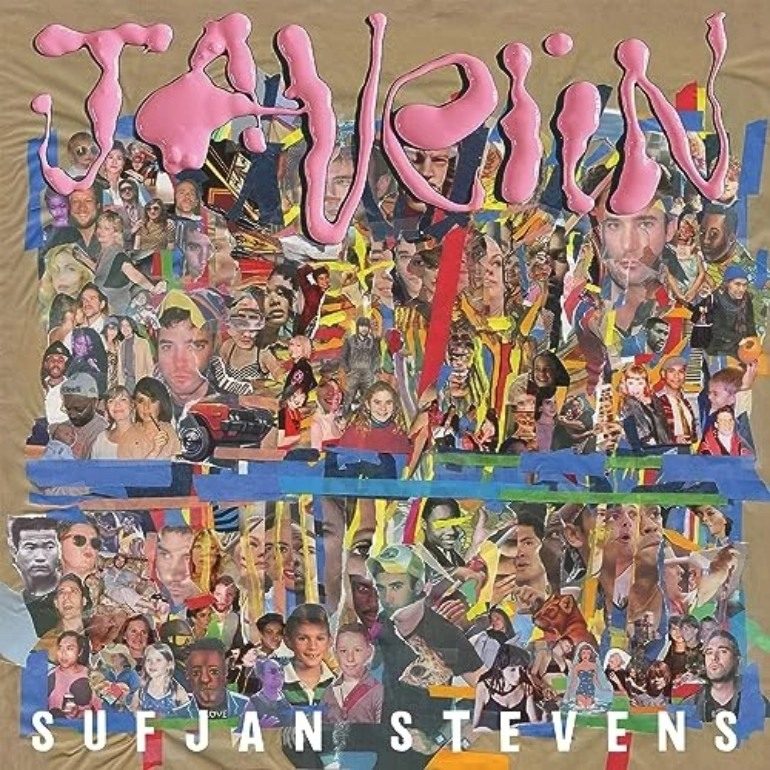

Sufjan Stevens’s tenth studio album Javelin uses his signature indie folk style combined with elements of fanaticism to convey a natural narrative to tackle the themes of processing and moving on from an imperfect relationship. Throughout Javelin, Stevens reminisces on a relationship, drawing in universal struggles of an occasionally tumultuous pair. He paints the album in a lens of mysticism, creating an almost fairytale-like essence which alludes to the often larger than life emotions that accompany a relationship. Stevens uses Javelin to tackle the complex, conflicting sensations inherent in coexisting with a partner through a lens of fantasy in his accustomed indie folk style.
Javelin sees Stevens expand on his instrumental abilities to instill a predictable formula to most songs on the album: an isolated voice in the introduction, choir-elements that later appear and a long outro to round out each piece. Stevens masters the layout for each – not straying away from his grasp of his accustomed folk style. Elements of his isolated voice appear in “Goodbye Evergreen,” and his incorporation of subtle instrumentals to enhance his voice present themselves in “Will Anybody Ever Love Me?” His employment of a long outro in most songs with instrumentals alludes to the lingering emotions present in a past relationship. This is especially evident in Javelin’s longest song “Shit Talk,” which further instills the difficulty in moving on despite still hoping for the best for a partner. Though Stevens adheres to a similar methodology for each song in Javelin, it allows him to truly instill the sometimes repetitive, cyclical nature of emotions after the fallout of a relationship. Javelin creates a somber atmosphere that permits Stevens to expand on the complex elements of losing a partner.
Stevens does not limit himself to one emotion in Javelin, as he draws on the variety of conflicting feelings he was experiencing throughout this time. The threat of losing or harming a loved one appears throughout the album, most notably in the album’s namesake song “Javelin (To Have And To Hold),” where Stevens grips with the opposing feelings of loss and anger. Stevens prioritizes the reminiscence of the relationship as well, as evident in “Everything That Rises” and “Genuflecting Ghost,” where he explores both the positive and negative aspects of the relationship in its fallout. Stevens notably frames Javelin like a fairytale, employing elements of mysticism and narrative to create an introspective nature to the album. Though this fantastical element is persistent throughout the album, it appears most notably in “My Red Little Fox,” where Stevens uses references to nature to spark a personal journey. He also includes religious components– both through direct reference and the lingering imprint of a choir throughout– to further contribute to this religious atmosphere. In Javelin’s final piece “There’s A World,” Stevens religious references appear most evidently to end the album on an optimistic note.
Stevens’s tenth studio album Javelin, produced in the aftermath of his loss of a partner, sees Stevens stick to his accustomed indie folk style to process the relationship. He creates a whimsical, fairytale-like to prompt the introspection evident throughout the album. Javelin’s slower, depleting tone speaks to the complexity of emotions that accompany any tumultuous relationship. His employment of mysticism and religious components further underscore the universality of these experiences and the optimism necessary to carry on. Javelin is Stevens’s complicated ode to a former partner and an inspirational note for him to move forward.
